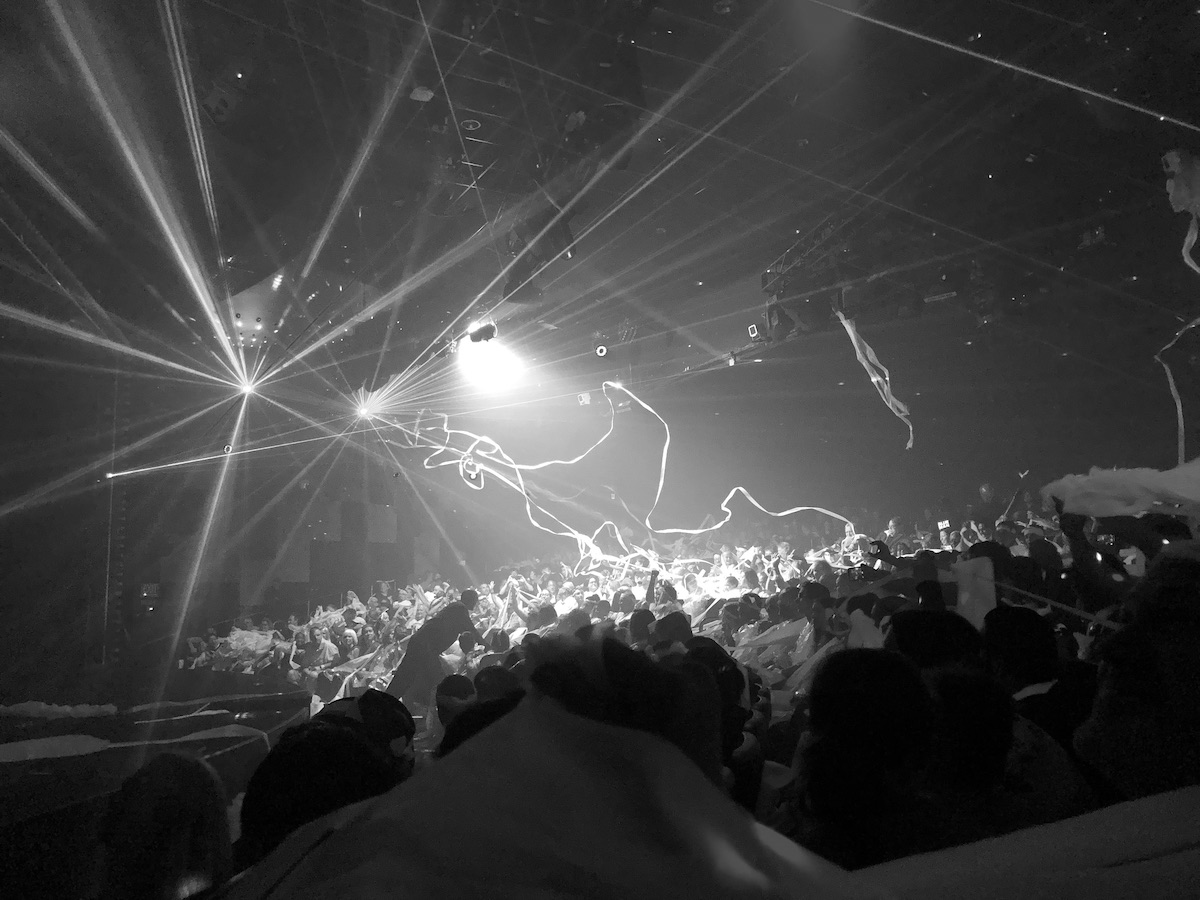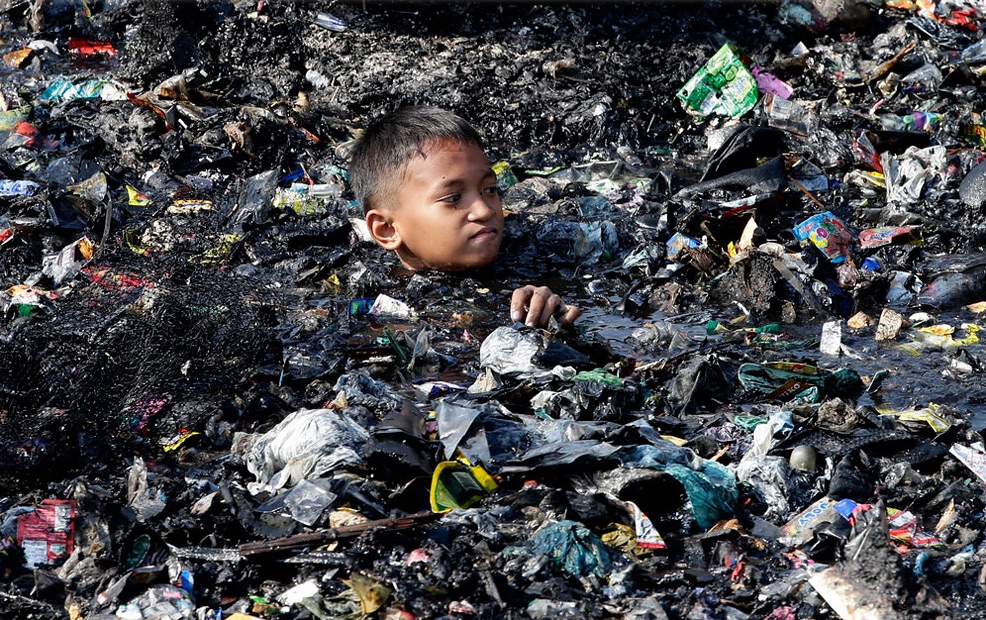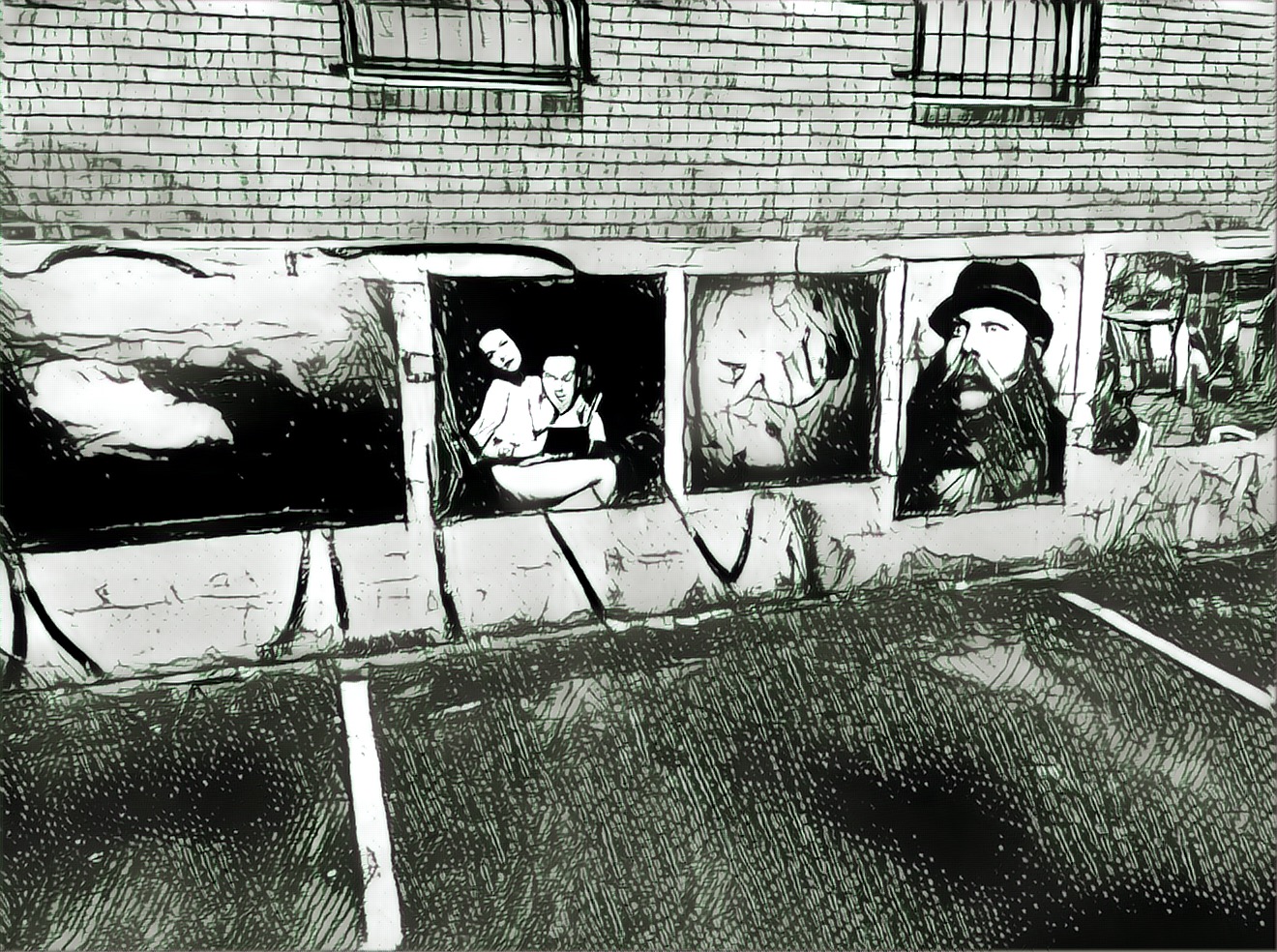The following is the second of a two-part series. The first portion can be found here. It was originally published in issue 22.1 of the Journal for Cultural and Religious Studies.
On a national level, a phrase that is oftentimes used in the last years to describe the change of the political landscape in Europe and globally is “shift to the right.” In any case, right-wing parties in EUrope have been quite vocal about their views on immigration and how it has affected society since 2015. They represent just one part of the political spectrum of the EU, however they have gained electorates or even won important elections since 2015 (in Austria, Italy, Sweden or Hungary for example). For the question of the interaction between EU borders and religion, it is worth it to glance at some right-wing interpretations about the in- and the outgroup since they have been present in discourse about migration.
Parties on the extreme right in EUrope find themselves easily torn between a strong nationalism on the one side, and a necessary relation with the EU on the other side. In the case of the German Alternative für Deutschland (AfD), there is a clear ideological limitation in the party’s self-understanding.[1] According to it, EUrope should be a union of free and sovereign countries that live together as good neighbours. If the aspired reforms of the party however cannot be realised within the framework of the EU, exiting the union is considered an option. Then again, the AfD ranges Germany as an “occidental, Christian culture”[2], which alludes to a bigger framework of a Christian occident.
While the party concedes the option for “moderated” Muslim individuals to belong to German society, it postulated that “Islam is not a part of Germany”. The party rejects any practice of Islam that directs itself against the liberal democratic order, laws or the “judeo-christian and humanitarian foundations of our culture. Here again, the reference to a shared “spiritual and moral heritage,” as it is cited in the EU Charter of Fundamental Rights is clearly visible.
In the Austrian case, the Freiheitliche Partei Österreichs (FPÖ) embeds Austria into a “European space of culture” that is rooted in Christianity but has also been influenced by other religions. It proclaims the values that spring from this “European worldview”[3] or “culture-Christianity”[4] as well as the readiness to defend these against fanatism or extremism. Important to highlight is the emphasis that the FPÖ puts on the prevalence of Christianity in culture, but not necessarily in a spiritual sense: the party explicates that this cultural domination is founded in the separation between state and church.
These are just two examples for a far-right definition of the European ingroup that link their understanding of their own nation and its reasons for staying in the EU to cultural similarities based on a history of Christianity. Far right parties in other countries might root themselves less explicitly within Christianity (e.g., France’s Rassemblement National[5]) or have a more ambiguous or conflicting relation with the EUropean context (e.g., Hungary’s Fidesz). However, these two examples raise the question: Is the EUropean union fundamentally a secular project? In order to answer this question, a short historical plunge into the interconnection between the EUropean Union and the current of Christian democratic politics will be undertaken.
The Traces of Christian Democracy in the European Union
A first important aspect is the idea of European integration that existed well before the Second World War, despite the Holocaust and the experiences of war and totalitarianism as important moral turning points for European politics: As a politically marginalized democratic centrist, Luigi Sturzo proclaimed the idea of a European federation already in the early 1920’s. The philosopher Jacques Maritain, who had influence on the Vatican and on leading post-war Christian democrats, wrote the program “Europe and the federalist idea” in 1940 to express his ideas for an after-war union. Both works conceive of Christianity as vital for the project. Maritain envisaged this political project as a third way in between liberalism and totalitarianism. Since 1929, Christian democrat parties started to network amongst each other within specifically established fora.[6] Wolkenstein describes the post-war period in Europe as a “Christian democrat moment”.[7]
Christian democratic parties won elections or got sufficient support for accessing important functions. He lists Germany’s Christlich Demokratische Union (CDU), Italy’s Democrazia Cristiana (DC) and France’s Mouvement Républicain Populaire (MRP)[8] as the most influential parties in Europe at that time, whose leaders Konrad Adenauer, Alcide de Gasperi and Robert Schuman actively promoted the idea of a European union (Wolkenstein 2022, 18). The project finally began in 1950 with the Schuman Plan that led to the 1951 established European Coal and Steel Community, whose six members (Germany, France, Italy, Belgium, Luxembourg and the Netherlands) all disposed of strong Christian democratic.[9] As the dominant power in Europe, Christian democrats had the possibility to try out their political ideas straightaway.[10] This political success is tied to ideological changes within the movement: While before the war they used to be parties for mostly Catholic Christians, they augmented their electorate in the post-war period to become “people’s parties” that aimed to represent all of society.
Following previous histories of political Christian authoritarianism, the parties tried to emphasize their (new) democratic orientation. This was possible because of a bigger distance in between the parties and the Catholic church.[11] However, the church also modified its stances towards more democratic and humanist[12] values, in line with Maritain’s philosophy.[13] The postwar period Christian democrats coined their political movement with values such as peace and stability. Van Kersbergen defines the core features of the modern political ideology as follows: integration (of social groups, classes, nations in the EU), (class)compromise and accommodation to resolve conflicts in society, without changing its (socio-economic) pluralism.[14]
Not only did the newly defined values of the Catholic church, as for example the concept of human dignity as indivisible value of the individual, get reflected in the writing of human rights and newly written constitutions, but Maritain himself was part of the promotion and drafting of the 1948 UN Universal Declaration of Human Rights.[15] This importance of Christian thinking for the foundation of fundamental rights implies a certain ambiguity: The moral influence of the church was possible because its contribution to authoritarianism in Europe had been forgotten, and personal continuity of former regimes’ functionaries within the parties was overshadowed.[16]
Contrary to democratic affirmations, especially German and Austrian Christian democrats supported the regimes of Franco and Salazar in Spain and Portugal; French and Belgian Christian democrats justified the continuation of their colonial regimes with the very same Christian values.[17] A final ambiguity resides in the constitution of the new democratic systems itself. The Christian democratic idea of protecting democracy by limiting it through juridical control has its origin in the idea that a state can only work well when it is restricted by the natural law of God.[18] This mechanism that also prevails in the EU because of its supranational structure[19] is furthermore connected to a mistrust in the decisions of the people and a preference for limited self-rule that gets tied to strong leaders.[20].
The already discussed myth of a “Christian occident” that is today rather connected to far-right agendas had been important for the post-war Christian democrats. First appearing in the Middle Ages as far back as the 15th century, the idea of Christian faith as a foundation for a shared European culture had already been used by intellectuals after the First World War in their plans to reshape Europe after Christian principles. Through the opposition with communism and the following Cold War, the term became a slogan amongst the Christian democratic parties. Alcide de Gasperi even formulated the vision of a European Union as an actualized version of a Carolingian Res Publica Christiana.[21] In the 1950’s, the vision of a union as “Christian occident” based on a cultural or spiritual understanding of Christianity, competed with the conception of a Europe united through Christian culture, but primarily through economic dependencies.
The first idea was promoted mainly by Catholics as Adenauer, Schuman or Strauss, excluded the United Kingdom as well as the Scandinavian countries from the European project and aimed to make Europe an independent third world power in the Cold War. The latter was mainly represented by Protestant politicians as Ludwig Erhard intended to include Scandinavia and the United Kingdom and aspired towards a possible alliance with the United States against the Eastern Bloc.[22] Evidently, the second idea was realized in the process of the EUropean integration which started with and still heavily relies on an economic union.
Despite ideological changes since the foundation of the EU, notably a liberalization of the former anti-liberalist Christian democrat parties,[23] it is striking to see how the concept of a “Christian occident” and the influence of the Christian religion as such featured significantly in the construction of a political union that is now easily perceived as secular.[24] Are its borders, debated from the beginning around the question of cultural and/or religious unity, constituted or at least affirmed also by belief?
Borders and Faith
Considering the heritage of Christian values of the EU, there are two ways of thinking about a faith that constitutes its inner unity and hence its borders, which suggest themselves. On the one hand, the secularity of the EUropean Union could be questioned and its relevant faith could be described as tied to Christianity. On the other hand, the union could be seen as secular with the twist that secularism can also serve as a foundation for faith establishing unity.
But what is meant here by secularism, and how should faith be understood? In the proposed opposition, secularism first needs to be defined as a doctrine ascribing its proper sphere to politics and is separated from religion.[25] However, the distance between religion and self-claimed secular politics can be disputed in real circumstances up to the point where secularism is considered a religion on its own.[26] In the present reflections, both understandings of secularism can be found. In the first step, its “ideal” definition serves as contrast to a politics informed by religion. In the second step, the factual ambiguities of the concept get explored.
Now faith is confidence in what we hope for and assurance about what we do not see. (Hebrews 11,1)
Faith is understood here in a broad sense, and more precisely, as every content of consciousness that establishes or contributes to the unity of a political community. For example, these can be values, imaginations, or utopias founding a certain basic identity of a political community, but also to the same effect these can be fears or general attitudes towards group outsiders. The latter are highly relevant for the question of borders, to find out for whom common utopias or identities stay inaccessible. In a democratic society defined by a plurality of opinions, there is certainly no consensus on these attitudes; the relevant claim however is, that even democratic communities need a minimal identity, an ideology may simply be an answer to the question: “Why should this regime be continued?”
And this cannot be exclusive only to a political elite or contained in “pure politics.” Especially in a democratic society, there exists the need for most people sharing this kind of faith in order to legitimize the system by votes.[27] As the abovementioned question and the mention of hope in the quotation from Hebrews 11,1 suggest, faith is directed to the future. However, the past presents a ready source for common values and is not excluded of faith. This assumption is made because faith about the future seems more important concerning the stability of a political system than faith about the past. This political faith seems especially important in times of war, when the status quo is endangered. For instance, Raymond Aron insisted 1939 in pre-occupied France on the need for democracies to want their victory, to find their values again.[28]
Another relevant detail of the quotation is the phrase “assurance about what we do not see.” It implies an inaccessibility to something, or a lack of vision, that is made up by faith. The separation between a faithful person and faith’s object produces a certain insecurity or risk that faith answers with assurance. A relevant question is whether this assurance needs to be given or suggested by someone else, as in the biblical context the origin of faith would be God. Another aspect of the biblical definition of faith is its relation to action: “[…] faith by itself, if it is not accompanied by action, is dead.” (James 2,17)
Hence, faith is visible in actions by which it needs to actualize itself to persist. In order to describe the phenomenon of social imaginaries in politics, the term “faith” was here chosen intentionally in order to highlight the conceptual similarities with the biblical term: Political faith is incited by political elites and concerns oftentimes something that is not possibly visible, as for example a “migration wave” or intentions of immigrants to “Islamize Europe.” Ultimately, political faith also expresses itself in corresponding actions that are the origin of this reflection about the interaction between faith and borders.
Furthermore, the object of religious faith is usually something considered as sacred, as God or the afterlife for example, which can be translated into the sacred unity of a political community in the case of political faith. In this sense, faith demarcates what is sacred to a community and what needs to be protected as the source of meaning and values that it represents.
The first possible specification of faith in case of the EU is a faith rooted in the Christian religion. This ties smoothly into the originally Christian democrat conception of EUrope as a “Christian occident” and the presented examples of right-wing discourse in EUropean member states. Indicators about a continuation of reference to Christian belief could be seen in multiple factors. First, in the mentioned difference of treatment between refugees from Ukraine and the global south.
Together with the emphasis on Islam as a potential danger in multiple sources, this points to difference in religion or religiously informed culture as decisive borders in political faith. Second, ongoing political adherence can be interpreted into singular events, as for example Von der Leyen’s visit in Taizé, a Christian community that is visited by thousands of young people every.[29] As president of the EUropean Commission, she referred to the young people she met there as a model for EUrope, as they have different backgrounds but share common values and ideals (“State of the Union” 2022, 20). She does not say it explicitly, but those values are most likely Christian.
Another model exists to think of the political faith of the EU as inspired by secularism. Continuing with the ideas the introduction, nationality can serve as a “secular” foundation for political faith. Benedict Anderson famously called these “imagined communities,” since the subjective antiquity of nations as well as their unity are imagined: Most nationals will never meet each other, but still imagine a communion that is in fact a relatively recent invention. According to Anderson, an inherent property of nations is their limitedness and exclusivity. [30]This implies that political faith, if it follows the rules of an “imagined community,” necessarily has borders. In terms of political faith, this translates into narratives of chosenness. But can a supranational structure incite the same kind of imagination? Can it coexist with national, political faith, or is it doomed to compete with it?
Régis Debray postulates the existence of what he calls “Europeanism,” a secular cult that proclaims humaneness, inclusivity, prosperity, and peacefulness as its values.[31] These are at the core of a vision of future and progress, “Eurotopia” the idea of transcending the nation-state that caused wars[32] and to unite over the idea of a better future, even if the differences between countries and political ideas are big.[33] Today, however, Debray diagnoses that the faith into Europeanism is getting weaker and weaker: It satisfies people’s desire for agency in global challenges and provides hope, but it is “the spirit of a period without spirit” and makes people believe in a progress despite existential absurdity.[34]
According to Debray, presenting oneself as EUropean today is the follow up of what it was once to call oneself a “good Christian:” It is the presentation of adherence to a certain set of moral values.[35] The political faith however is prevalent mostly amongst political elites that cling to their “collective narcissism” even if collective solidarity and interest amongst member states are shrinking. Debray introduces a specific kind of secular, political faith that replaced religious beliefs and supposedly got weaker or even transformed into nihilism. Regarding the war in Ukraine and the interactions with refugees, it is questionable if political faith in EUrope is not rising and whether political nihilism is possible at all.
Anderson suggests distinguishing communities not by their genuineness, but rather by the style in which they have been imagined. In this sense, it could be that the EUropean political faith is in fact a combination of Christian and secular narratives.[36]
Conclusion
More than one EUropean political faith is possible. What they have in common is an idea of progress and future. This ideal however is inaccessible in the first place for many people on the move. They experience the physical border that is hard to cross despite legal and humanitarian promises. They face the limits of political faith, of the sacred community through Xenophobia and Islamophobic discourse, even if they are in EUrope. It is them that live through pushbacks – they embody the limits of political faith. Considering the drafts for the “New Pact on Migration,” this situation will not change soon.[37] How long can people be sacrificed (literally: “made holy”) for the integrity of an in-group before this group gets held responsible for this sacrilege?
The question remains: How can we create a better future? If it is true that political faith aligns or even interacts with border and asylum politics, as it has been argued in this paper, it is worth it to try to alter our beliefs about community. In order to do so, it is pertinent to question the use of the ascription “secular” to challenge the notion of progress and reflect upon who is allowed to join in on it. Alternative conceptions of progress are thinkable. For example, through Joseph R. Winter’s “Melancholic hope,” a proposal for a kind of progress including melancholia, grief, and loss; a progress made through vulnerability for other people’s situations.[38]
Anna-Maria Edlinger is a doctoral candidate in Philosophy at École Normale Supérieure, Paris. Her main interest is in political philosophy, where she is trying to combine social sciences methods with philosophical reflection. This publication allows her to further explore the philosophy of religion and embodiment and to draw attention to the situation of refugees at EUropean external borders.
[1] Alternative für Deutschland (AfD), “Grundsatzprogramm für Deutschland.“ Written on the April 30th and May 1st, 2016. Accessed January 29th, 2023. .
[2] Originally: „ abendländische christliche Kultur“ (AfD, 2023). “Abendland“ can also be translated as “the land of the evening, the land that is closest to the sunset.”
[3] Originally: “Europäisches Weltbild” (FPÖ 2011).
[4] Originally: „Kultur-Christentum“ (FPÖ 2011).
[5] Potentially due to the French tradition of laïcité, a strict separation of state and church.
[6] Wolkenstein, Fabio, “Die dunkle Seite der Christdemokratie: Geschichte einer autoritären Versuchung“ (Munich: C.H. Beck, 2022), slide 10-12.
[7] Ibid., 18.
[8] DC and MRP do not exist anymore today.
[9] Wolkenstein, op. cit., slide 6.
[10] Op. cit., 104.
[11] Op. cit., 90-2.
[12] The novelty of these humanist values adopted by the church is that they reside in the individual (Wolkenstein 2022, 100).
[13] Wolkenstein, op. cit., 100.
[14] Op. cit., 36.
[15] William Sweet, Jacques Maritain”, The Stanford Encyclopedia of Philosophy (Summer 2022), Edward N. Zalta (ed.). Accessed January 29th, 2023.
[16] Wolkenstein, op. cit., 101-2.
[17] Op. cit., 127-9.
[18] Op. cit., 99.
[19] Op. cit., 121-2.
[20] Op. cit., 13.
[21] Op. cit. 123-4.
[22] Op. cit., slide 32.
[23] Op. cit., 32.
[24] Sarah Wolff for example describes EUropean identity and its’ foreign politics as strongly marked by a normative secularism (“Europe as a Secular Power: An interview with Sarah Wolff”, 2021).
[25] Cambridge Dictionary suggests the meaning “not having any connection with religion” for “secular” (Cambridge Dictionary, 2023).
[26] This is claimed for instance about laïcité in France (“Europe as a Secular Power: An interview with Sarah Wolff”, 2021).
[27] These claims are based on an “optimistic” conception of democracy, that understands it literally as rule of the people, where people’s votes and opinions matter. It is assumed that people actually have a choice and can influence rule. If democracy is understood as just another form of elite rule, a “pessimistic” understanding of democracy, these considerations are less important. A common cause or identity is however one way to stabilize a regime and avoid force in doing so.
[28] Aron, Raymond, Croire en la Démocratie, Vincent Duclert, ed. (Paris: Arthème Fayard/Pluriel, 2017), 79.
[29] Press Release, “Ursula von der Leyen in Taizé”, August 19th, 2022. Accessed February 15th, 2023. https://www.taize.fr/en_article34443.html.
[30] Benedict Anderson, Imagined Communities (London: Verso, 1983), 5-7.
[31] Régis Debray, L’Europe Fantôme. Paris: Gallimard Tracts, 2019), 4.
[32] Ibid., 6.
[33] Ibid., 10.
[34] Ibid., 4.
[35] Ibid., 6.
[36] Anderson, op. cit. 6.
[37] An idea of the “Proposal for a Regulation introducing a screening of third country nationals” is to filter people that are unlikely to receive international protection at the earliest stage possible. “Unlikely” means that the usual recognition rate is below 25%. As the early recognition has the goal to ascribe as soon as possible the correct administrative process to a person – either an asylum procedure or a return – it seems that people with less than 25% of chance to get admitted asylum would be returned without any individual hearing. (European Commission 2022, “Proposal for a regulation introducing a screening of third country nationals”.
[38] Joseph R Winters, Hope Draped in Black. Race, Melancholy and the Agony of Progress (Durham: Duke University Press, 2016), 16.




